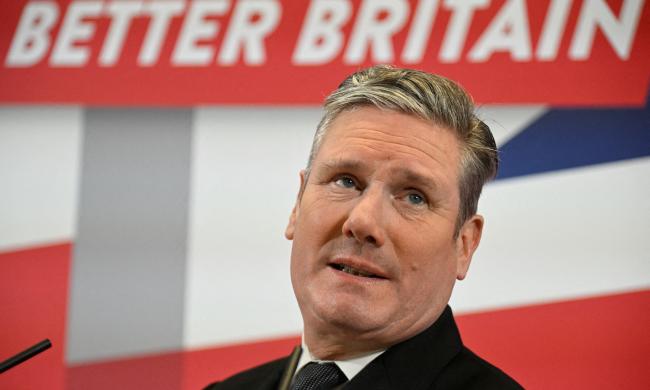Keir Starmer, the leader of Britain’s Labour Party, is set to include a promise to recognise a Palestinian State in the party’s election manifesto. This is aimed at bolstering support from the left, the Guardian newspaper reported.
The manifesto, to be finalised on Friday and launched next Thursday, will reportedly take a cautious approach with few new policy announcements, unlike the more comprehensive manifestos published under Jeremy Corbyn’s leadership in 2017 and 2019.
According to a source familiar with the draft document, the party is exercising fiscal restraint to avoid providing ammunition to the Conservatives, acknowledging that unfunded policies are unlikely to be implemented.
The inclusion of a specific mention of the Middle East in the Labour Party’s manifesto came as a surprise, as the primary focus is expected to be on Keir Starmer’s five key “missions” – economy, education, health, energy, and crime.
The commitment to recognising a Palestinian state as part of a peace process aligns with remarks made by Foreign Secretary David Cameron in January.
Cameron’s comments, which emphasised the need for “irreversible progress” towards a two-state solution, drew criticism from within his own party. The move by Labour leadership is seen as an effort to distinguish themselves from the Conservatives on this issue.
Labour’s decision to recognise Palestine is likely to spark tension with Israel, whose Prime Minister Benjamin Netanyahu vehemently opposed similar moves by Ireland, Spain, and Norway in May, denouncing it as a “reward for terrorism”.
Initially, Keir Starmer aligned with the British government and the US in their support for Israel during the Gaza conflict, which drew criticism from the Labour left.
However, Labour has recently distanced itself from the government’s stance, implicitly backing the international criminal court’s move to issue an arrest warrant for Netanyahu.
By embracing Palestinian statehood, Labour aims to regain support among Muslim and progressive voters, who have grown disillusioned with the party’s foreign policy. Party officials fear losing key urban constituencies, Bristol Central and Sheffield Hallam, if they fail to reconnect with these voters.


